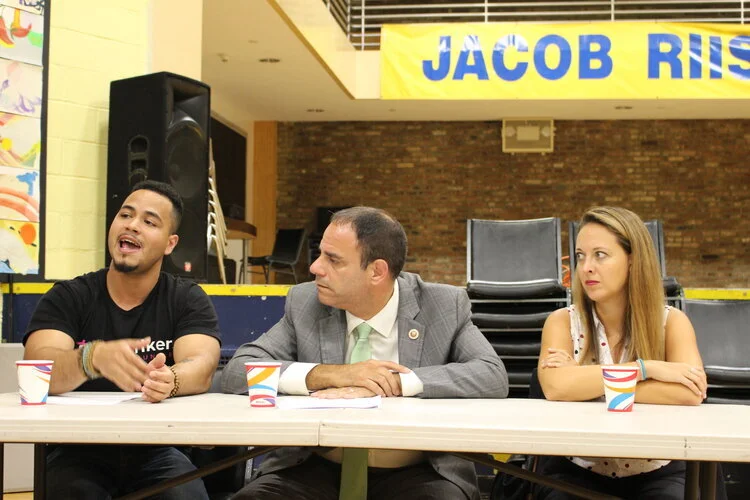
News & Resources
Articles
Renewable Rikers coalition tells DEC that Rikers power plant permit conflicts with both city law mandating closure of Rikers jails by 2027 and state climate law.
The Council-approved directive to turn the notorious lock-up into a renewable-energy hub has mostly been stuck in the mud.
Wastewater treatment and green energy generation are both feasible where troubled city jails now stand, new city studies conclude.
This community-developed plan could serve as a model for how to simultaneously decarcerate and decarbonize.
As Rikers Island awaits a decision about a possible federal receivership, community members in the South Bronx are calling for control of the jail complex to be transferred to agencies responsible for renewable energy.
The plan to transform Rikers into a green energy hub has missed two key deadlines, leading City Council members to question the mayor’s commitment.
The plan to transform Rikers into a green energy hub has missed two key deadlines, leading City Council members to question the mayor’s commitment.
The plan to transform Rikers into a green energy hub has missed two key deadlines, leading City Council members to question the mayor’s commitment.
Promising to clean up New York’s electricity grid, while providing jobs for former inmates, the proposals bring new meaning to climate justice.
A new 30-page report released by the Regional Plan Association (RPA) offers a restorative, sewage treatment plant–anchored vision of redemption and renewal for an island long populated by—and synonymous with—New York City’s troubled main jail complex.
Every six months between August 2021 and August 2027, the Department of Correction is required to transfer pieces of Rikers Island, be it shuttered buildings or vacant land, to the Department of Citywide Administrative Services. Last year, the transfers began and the DOC handed over what was the first-ever permanent jail on the island to DCAS.
As work continues on an $8-billion program to build four jails replacing New York City’s Rikers Island facility, plans are being developed to potentially transform the East River island for wastewater treatment and resource recovery.
In the most recent move to implement the Renewable Rikers Act, the city has authorized the transfer of 43 acres of vacant, unused land on Rikers Island away from the Department of Corrections.
By putting racial justice and overburdened communities at the center of building a clean energy grid, Renewable Rikers offers a model for genuine and transformative change that confronts root causes of inequality and builds a better, fairer city. It does so by tying electrification and land use decisions to equity concerns, and by facilitating meaningful community involvement in these infrastructure decisions.
The Renewable Rikers Coalition today welcomed the announcement that JATC, a closed facility on Rikers Island currently used for storage, with a total building area of 468,129 square feet, is being transferred from the Department of Correction (“DOC”) to the Department of Citywide Administrative Services (“DCAS”) -
